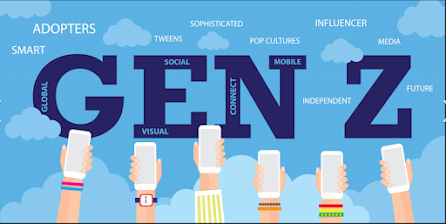Accounting for Generation Z: Engaging the post-Millennial workforce
Move over Millennials, subsequent cohort to hitch the profession is Generation Z. But if you thought the principles of engagement were an equivalent to focus on this tranche of job seekers and obtain the foremost out of them within the workplace demands a special approach, experts explain.
Millennials are now well-established in accounting – many as partners, CFOs or running their own firms. Subsequent demographics off the ranking is Generation Z, a term which refers to those born from the mid-1990s to the mid-2010s.
Unlike Millennials, sometimes labeled the “me generation” that began in an era of economic prosperity and rapid technological development, Gen Zen's are true digital natives who value individual expression and avoid labels, McKinsey experts say. Who doesn’t love an honest generalization?
Previous generations of employees were happy enough as long as their jobs didn’t negatively affect them, we’re told. Now, the younger workforce wants their jobs to possess an actively positive impact on their wider wellbeing, says Kelly Feehan, Services Director at CABA, the wellbeing Charity for Chartered Accountants.
“This issue is merely getting to become more significant as Generation Z, who aren’t prepared to sacrifice their physical or psychological state on the altar of labor, structure more of the workforce. Employers must therefore place a transparent specialize in workplace wellbeing packages and more flexible working options,” Feehan adds.
This younger workforce also must be confident that their abilities aren’t being misjudged and that they aren’t being labeled simply as “young”. Research conducted by CABA found that 43% of 16- to 24-year-olds worry about not being taken seriously due to their age. A scarcity of clarity around career progression may be a big concern for several young accountants.
Employers can address this by cultivating an entrepreneurial mentality within the corporate, encouraging employees to feed their ideas on things like technology pilots, sustainability initiatives and employee benefits packets. “By giving employees the chance to assist shape the longer term of the business, employers can motivate and support their teams,” Feehan says.
Gen Zen's are drawn to businesses with strong values and a way of purpose. “Broad-brush” incentives like money, benefits or rewards are unlikely to chop it. “Strategies around look after the community and therefore the environment are key for recruiting talent also as demonstrating how the business gives back to the community,” Donna Bulmer, Managing Partner of Haines Watts within the North East and Yorkshire, says.
Meeting their individual motivations during a way that creates them feel understood and providing a culture of learning where individuals are liable for their own learning, are essential to inspiring this generation of employees, says Kate Turner, Director at consultancy Motivational Leadership.
“When people love what they are doing, they are doing it such a lot better. Employee development must be a part of the everyday, instead of something which happens formally and sometimes . This generation are tech-savvy and real multi-taskers, so providing them with bite-sized chunks of self-directed learning which may take them on their own path will keep their interest,” she says.
But it’s also about giving them opportunities to use this learning and be gently stretched of their temperature in order that they can develop the talents and skills needed to deliver the firm’s strategy, consistent with Turner. Providing a network of mentors, coaches and buddies around them to support them in their learning will allow them to forge their own development plan – shaped by what they have to deliver, their objectives, and most significantly their motivators.



Comments
Post a Comment